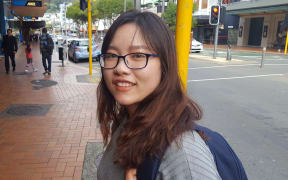One man is suspected of controlling a large part of the Indian student market and taking a cut of commissions paid to many of the agents who recruit students, Immigration New Zealand documents show.
The man is believed to be working with two others to operate a network of agents in India.

Photo: 123RF
"Information from the Indian community in Auckland indicates [name redacted] 'controls everything', although requires others to complete the work to maintain a clean appearance," a document said.
"His system is referred to as an 'old boys network' and [name redacted] gets a cut of everything."
The document said the man and his two associates ran a company to "cater to agents as advised by colleges" and some institutions would only accept students from agents affiliated to the company.
"It is possible PTEs [private training establishments] are aware of [name redacted] business practices, but believe [name redacted] has a stronghold over the agent and student market in India. It is possible they are hesitant to act against him as they believe it may impact the volume of students enrolling in the schools."
RNZ News has identified the three men, but has chosen not to name them for legal reasons.
The document said institutions might think the men's company was managing the selection and visa application process for their students, but it was likely they were instead receiving applicants from unknown sub-agents, contributing to a high decline rate.
It said two polytechnics and a private tertiary institution cancelled contracts with two of the men because they were using sub-agents to recruit students.
The report said there was very little evidence directly linking the leader of the group to any actual offending.
The second man was believed to have supplied a personal loan of $100,000 to the director of an Auckland tertiary institution "with the implied condition student applications would be funnelled through" him.
RNZ News understands the recipient of the money later sold the institution to another organisation and is no longer involved.
The documents said the second man was working with others who allegedly operated a network organising fraudulent documents for visa applications in New Zealand.
The third man in the trio owned a New Delhi business with a history of providing unlawful advice about immigration to New Zealand.
'Highly likely' three men operating network of agents
Immigration New Zealand would not elaborate on its concerns and admitted its intelligence reports sometimes included anecdotal evidence.
However, the report said it was "highly likely" the three men were operating a network of agents for commission and one of the men had told Immigration they were working together.
The man Immigration was told was the leader of the group told RNZ News the description of him as controlling everything and running a large network of agents was absolutely incorrect.
He said he did not have any agents and he only worked for the institution that employed him and not with other organisations.
He said he did deal with the two other men, but he was not part of their organisations.
He said it was not correct that three institutions stopped working with him because of his use of sub-agents.
Another of the men told RNZ News that Immigration might have been fed false stories by rival businesses.
He denied receiving commissions or payments from agents or companies other than his own company, which he said brought about 100 Indian students a year to New Zealand.
People with close knowledge of the Indian student market, who asked not to be identified, said the allegations were credible and probably correct.
One said the trio had "in-roads from end to end" of the Indian market.
"They are very well embedded," he said.
The man said the men were "aggregators" who pulled together a large number of agents and were involved with "most of the recruitment" from north India.
He said the men's activities were positive for New Zealand in terms of the volume of students they could direct to this country's institutions, but also negative "because it opens channels that are not desirable".
He said agents in India who were not part of the men's group were unhappy with the arrangement.
'We would always ask his opinion'
The chief executives of institutions that had dealt with the men had varied opinions.
One said it was true the men controlled the market and that people were scared to offend them.
Another said the man considered to be the leader of the group was extremely knowledgeable.
"If we think about delivering a new course or region, we would always ask his opinion," he said.
The chief executive said his school did not require agents to work through the man's company and he would be surprised if agents felt they had to do that.
Another Auckland PTE chief executive said the men accepted almost anyone as an agent and that had contributed to a high number of visa refusals for his institution.
However, he doubted they had a controlling interest over the Indian market.
A fourth PTE leader said it was "probably correct" that the men provided the lion's share of agents, and therefore students, from India.
He said his institute had previously used the men's services, but did not have an exclusive agreement with them and had stopped enrolling students from India.







